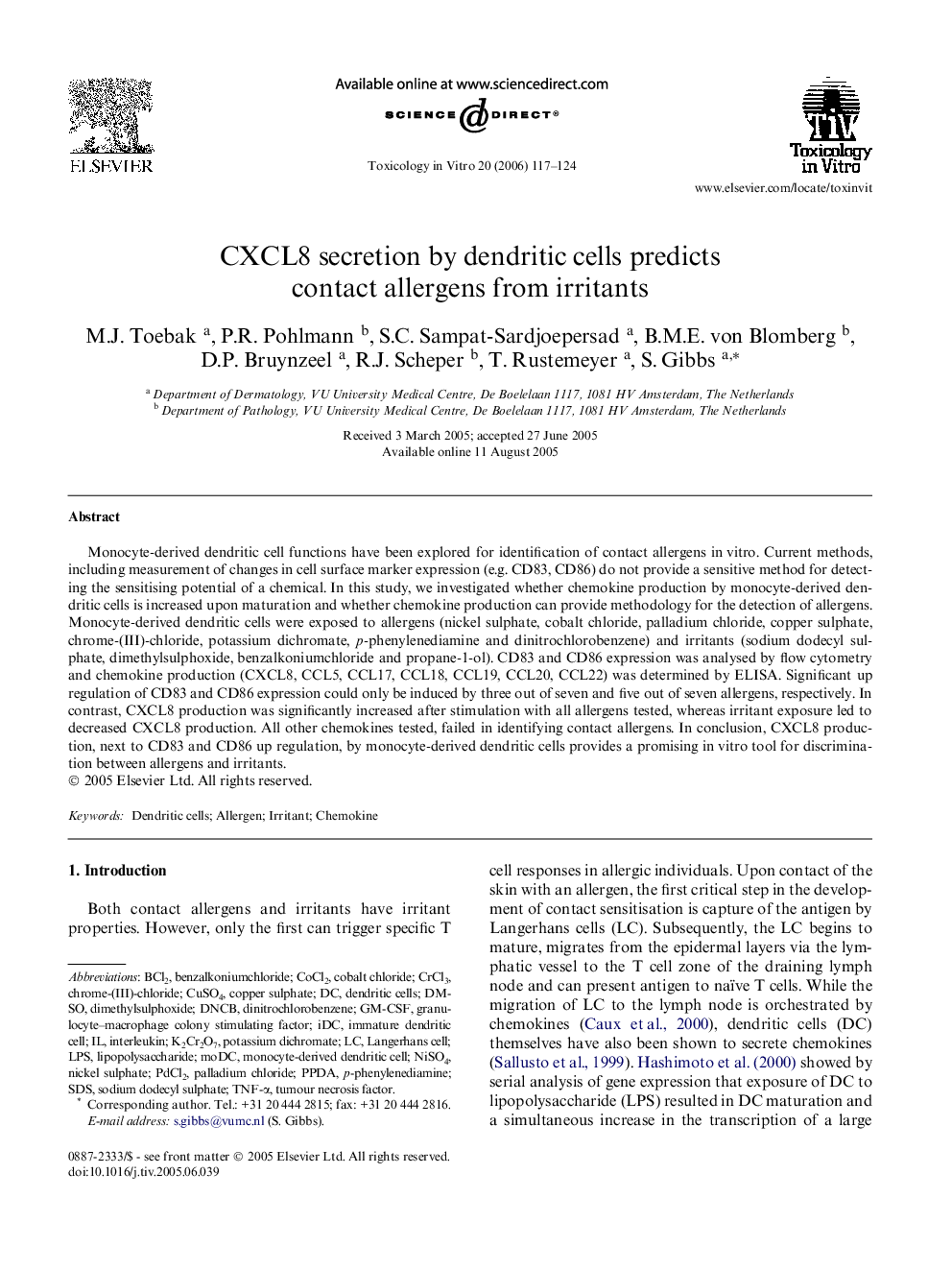| Article ID | Journal | Published Year | Pages | File Type |
|---|---|---|---|---|
| 2603686 | Toxicology in Vitro | 2006 | 8 Pages |
Monocyte-derived dendritic cell functions have been explored for identification of contact allergens in vitro. Current methods, including measurement of changes in cell surface marker expression (e.g. CD83, CD86) do not provide a sensitive method for detecting the sensitising potential of a chemical. In this study, we investigated whether chemokine production by monocyte-derived dendritic cells is increased upon maturation and whether chemokine production can provide methodology for the detection of allergens. Monocyte-derived dendritic cells were exposed to allergens (nickel sulphate, cobalt chloride, palladium chloride, copper sulphate, chrome-(III)-chloride, potassium dichromate, p-phenylenediamine and dinitrochlorobenzene) and irritants (sodium dodecyl sulphate, dimethylsulphoxide, benzalkoniumchloride and propane-1-ol). CD83 and CD86 expression was analysed by flow cytometry and chemokine production (CXCL8, CCL5, CCL17, CCL18, CCL19, CCL20, CCL22) was determined by ELISA. Significant up regulation of CD83 and CD86 expression could only be induced by three out of seven and five out of seven allergens, respectively. In contrast, CXCL8 production was significantly increased after stimulation with all allergens tested, whereas irritant exposure led to decreased CXCL8 production. All other chemokines tested, failed in identifying contact allergens. In conclusion, CXCL8 production, next to CD83 and CD86 up regulation, by monocyte-derived dendritic cells provides a promising in vitro tool for discrimination between allergens and irritants.
